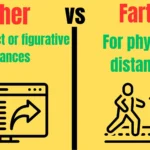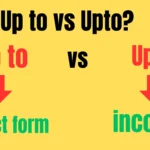Language is full of subtle nuances, and small changes in phrasing can significantly alter meaning.
Two common phrases that often cause confusion are “Day Off” and “Off Day.” These expressions might seem similar, but they carry distinct connotations and are used in different contexts.
Whether you’re scheduling time away from work or describing a less-than-perfect day, knowing when and how to use these phrases is crucial for clear communication.
In this article, we’ll dive deep into the meanings, contexts, and proper usage of “Day Off” and “Off Day,” providing you with practical examples and insights to master these expressions.
Defining “Day Off”
A “Day Off” refers to a planned or scheduled time away from work, school, or other regular responsibilities.
It’s a period when you are officially excused from your usual duties, often for rest, relaxation, or personal activities.
The term is commonly used in professional settings to describe a break from work, such as a weekend, holiday, or vacation day.
Common Contexts for “Day Off”
- Workplace: Employees often request a “Day Off” for personal reasons, medical appointments, or to simply recharge.
- School: Students may take a “Day Off” due to illness, personal matters, or school holidays.
- Personal Time: A “Day Off” can also refer to time taken to engage in hobbies, spend with family, or take care of personal tasks.
Connotations of “Day Off”
- Rest and Relaxation: A “Day Off” is generally associated with positive activities, such as spending time with loved ones, pursuing hobbies, or simply resting.
- Planned Absence: It implies that the time off is anticipated and agreed upon, often scheduled in advance.
Appropriate Usage of “Day Off”
Understanding when to use “Day Off” can help you communicate more effectively, particularly in formal and professional environments.
Guidelines for Using “Day Off”
- Formal Requests: When requesting time away from work, “Day Off” is the appropriate phrase. For example, “I’d like to take a day off next Friday.”
- Planned Vacations: If you’re scheduling time off for a vacation, “Day Off” accurately describes this absence.
- Cultural Variations: In some cultures, the concept of a “Day Off” may include specific religious or cultural holidays, such as Christmas, Eid, or Diwali.
Comparison with Similar Terms
- Vacation Day: Typically used when the time off is part of a longer period of leave, often planned well in advance.
- Personal Day: Refers to time taken for personal reasons, which may or may not be planned in advance.
Example Sentences
- “I’m taking a day off to attend my cousin’s wedding.”
- “She has several days off scheduled for her summer vacation.”
The Positive Implications of a “Day Off”
Taking a “Day Off” isn’t just about getting away from work; it has significant positive implications for both mental and physical health.
Let’s explore why taking time off is essential.
Impact on Productivity and Well-Being
- Increased Productivity: Regular breaks from work can lead to higher productivity. A study by the American Psychological Association (APA) found that employees who take regular days off are more productive and less prone to burnout.
- Mental Health Benefits: A “Day Off” allows for mental rest, reducing stress and improving overall well-being. According to the World Health Organization (WHO), regular breaks are crucial for maintaining mental health.
Case Study: The Power of a “Day Off”
A 2019 study by Harvard Business Review analyzed companies that implemented mandatory “Day Off” policies.
The study found that these companies saw a 30% increase in employee satisfaction and a 20% boost in overall productivity.
Employees reported feeling more valued and were more committed to their work after taking regular days off.
List of Benefits of Taking a “Day Off”
- Reduced stress levels
- Improved focus and creativity
- Enhanced work-life balance
- Increased job satisfaction
- Better physical health
Defining “Off Day”
An “Off Day” refers to a day when things don’t go as planned, often marked by subpar performance, low energy, or unexpected challenges.
Unlike a “Day Off,” an “Off Day” is usually unplanned and is more about how the day feels rather than an official break from responsibilities.
Common Contexts for “Off Day”
- Sports: Athletes might refer to a poor performance as an “Off Day.” For example, “The team had an off day and lost the game.”
- Work: In the workplace, an “Off Day” might describe a day when someone isn’t performing at their usual level due to fatigue or other factors.
- Personal Life: We all have “Off Days” where nothing seems to go right, from spilling coffee in the morning to missing important meetings.
Connotations of “Off Day”
- Subpar Performance: The phrase suggests that the day’s events didn’t meet the usual standards.
- Unplanned Difficulties: An “Off Day” typically comes as a surprise, rather than something you can prepare for.
Example Sentences
- “I’m having an off day, nothing seems to be going right.”
- “The project didn’t turn out as expected; I must have been having an off day.”
“Day Off” vs. “Off Day”: Clarifying the Confusion
Now that we’ve defined both phrases, it’s essential to understand how to differentiate between them.
The key lies in context and connotation.
Direct Comparison of the Two Phrases
- Day Off: Refers to planned, positive time away from responsibilities.
- Off Day: Refers to an unplanned day marked by difficulties or poor performance.
Miscommunication Risks
Using these phrases interchangeably can lead to confusion. For instance, telling your boss you’re having a “Day Off” when you mean an “Off Day” could imply you’re intentionally skipping work rather than experiencing a tough day.
Common Mistakes
- Confusing Formal and Casual Contexts: Using “Off Day” in a formal setting might come across as unprofessional. Conversely, using “Day Off” in a casual setting might sound overly formal.
- Incorrect Tone: “Day Off” has a positive, restful connotation, while “Off Day” carries a more negative tone. Mixing these up can convey the wrong message.
Real-Life Examples
Let’s consider a few examples to clarify these differences:
| Scenario | Correct Phrase | Explanation |
| Taking a break from work | Day Off | This is a planned and positive break from responsibilities. |
| Feeling unproductive | Off Day | This reflects a day when you’re not at your best, likely unplanned. |
| Scheduled vacation | Day Off | Refers to time away from work for rest and relaxation. |
| Struggling with tasks | Off Day | Describes a day marked by challenges or poor performance. |
Contextual Differences and Their Impact on Meaning
Context is everything when it comes to choosing between “Day Off” and “Off Day.” Let’s explore how different scenarios can affect which phrase is appropriate.
Work Context
- Day Off: “I’m taking a day off next Friday for a family event.” This suggests a planned absence with a positive tone.
- Off Day: “I’m sorry for the mistakes; I’m having an off day.” This implies that your performance is below your usual standard, likely due to unanticipated difficulties.
Sports Context
- Day Off: “The coach gave the team a day off after their win.” This means the team is getting a well-deserved break.
- Off Day: “The team had an off day and didn’t perform well.” This indicates that the team’s performance was below expectations.
Personal Life Context
- Day Off: “I’m taking a day off to relax and recharge.” Indicates a planned day for self-care.
- Off Day: “It’s just been an off day; everything seems to be going wrong.” Reflects a day filled with unplanned challenges.
Impact on Tone and Perception
- Day Off: Typically viewed positively, suggesting rest and renewal.
- Off Day: Carries a more negative connotation, indicating struggles or poor performance.
Real-Life Examples of “Day Off” in Sentences
To further clarify, here are some examples of how “Day Off” is used in various contexts:
- Work: “I’m taking a day off to handle some personal errands.”
Explanation: This sentence clearly communicates that the time off is planned for personal matters. - School: “The students have a day off due to the national holiday.”
Explanation: Here, “Day Off” refers to a break from school, scheduled because of a holiday. - Personal Life: “She took a day off to spend with her family.”
Explanation: This usage shows that the day was taken intentionally to focus on family time.
Synonyms for “Day Off”
- Leave of Absence: Generally used for a longer period off work.
- Break: Can refer to shorter periods away from work or responsibilities.
- Holiday: Often used interchangeably, especially in British English.
How “Off Day” Is Used in Everyday Language
Now, let’s look at how “Off Day” appears in various settings:
- Sports: “The pitcher had an off day and couldn’t find his rhythm.”
Explanation: This describes a performance that was below the usual standard. - Work: “I’m sorry, it’s just an off day for me; I’ll do better tomorrow.”
Explanation: Here, “Off Day” is used to explain subpar performance at work. - Personal Life: “It’s been an off day, nothing seems to be going right.”
Explanation: This usage reflects a day where challenges seem to be piling up unexpectedly.
Emotional and Situational Implications
An “Off Day” often carries an emotional weight, reflecting frustration, disappointment, or fatigue. It’s a phrase that captures the unpredictability of life and acknowledges that not every day will be perfect.
When to Use “Day Off” vs. “Off Day”
Choosing the right phrase depends on the situation and the message you want to convey. Here’s a simple guide to help you decide.
Guidelines for Choosing “Day Off” or “Off Day”
- Use “Day Off” when: You’re referring to a planned, positive break from responsibilities.
- Use “Off Day” when: You’re describing a day marked by unexpected challenges or subpar performance.
Decision-Making Flowchart
| Question | Phrase to Use | Reason |
| Is it a planned absence? | Day Off | Indicates scheduled time away from work or duties. |
| Is the day characterized by poor performance? | Off Day | Reflects a day where things aren’t going as expected. |
| Is the tone positive? | Day Off | Suggests rest, relaxation, or a break. |
| Is the tone negative? | Off Day | Indicates challenges or difficulties. |
Summary of Key Points
- Day Off: Planned, positive, and associated with rest.
- Off Day: Unplanned, challenging, and linked to subpar performance.
Common Misconceptions and Mistakes
Despite their differences, “Day Off” and “Off Day” are often confused. Let’s address some common misconceptions and provide tips to avoid mistakes.
Misconception 1: “Off Day” Means the Same as “Day Off”
- Correction: “Off Day” is about unexpected difficulties, while “Day Off” is a planned break.
Misconception 2: “Day Off” Can Be Used in Casual Settings to Describe an Unplanned Absence
- Correction: “Day Off” should be reserved for planned absences, particularly in formal settings.
Tips to Avoid Mistakes
- Remember the Tone: If the situation is positive and planned, use “Day Off.” If it’s negative and unexpected, “Off Day” is the right choice.
- Consider the Context: Think about whether the day was anticipated or if it caught you by surprise. This will guide your choice of phrase.
Conclusion: Mastering the Subtle Differences
Understanding the differences between “Day Off” and “Off Day” is key to clear and effective communication. These phrases may seem similar, but their meanings and connotations are distinct. By paying attention to context and tone, you can use these expressions accurately and confidently.
Whether you’re planning a much-needed break or simply acknowledging a tough day, choosing the right phrase will help convey your message clearly.
So next time you find yourself needing to describe your day, you’ll know exactly which term to use—ensuring your communication is both precise and effective.

As an experienced English teacher, I’m Jessica Thompson, here to make grammar and vocabulary simple and fun. Join me on TalkSpeaker as we explore the language together, one lesson at a time!



